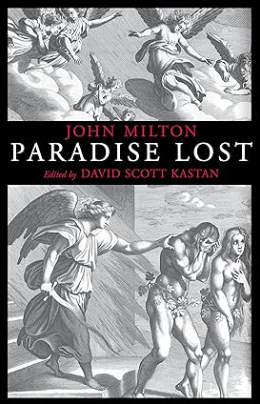Paradise Lost

"Paradise Lost," an epic poem by John Milton, published in 1667, is a profound and complex work that retells the biblical story of the Fall of Man. The poem is divided into twelve books and follows the trajectory of Satan and his followers after their expulsion from Heaven, the creation of the world, and the subsequent temptation and fall of Adam and Eve.
The poem begins in medias res, with Satan and his fellow rebels lying defeated in Hell. Satan, undeterred by his defeat, rallies his fallen angels and plots to corrupt God’s new creation—humankind. In disguise, Satan infiltrates the Garden of Eden, where he successfully tempts Eve to eat the forbidden fruit, leading to the fall of both Eve and Adam. The narrative encompasses a vast array of themes, including obedience, rebellion, free will, and redemption.
Milton’s portrayal of Satan as a tragic, almost heroic figure, his vivid descriptions of the celestial and infernal realms, and his deep philosophical and theological reflections make "Paradise Lost" a cornerstone of English literature.
Following the footsteps of Homer and Virgil, Milton’s work is an epic in both scope and ambition. The poem's grand scale, the invocation of the muse, and the use of blank verse align it with the classical epics while establishing a new standard for English epic poetry.
Milton’s mastery of blank verse and his inventive use of language set "Paradise Lost" apart. His rich, sonorous lines and intricate syntax demonstrate his linguistic prowess and ability to convey complex theological and philosophical ideas.
The poem delves deeply into questions of free will, predestination, and the nature of good and evil. Milton’s exploration of these themes reflects the intellectual milieu of the 17th century, marked by religious turmoil and philosophical inquiry.
Milton's nuanced characterization, particularly of Satan, has been a subject of much scholarly debate. Satan’s portrayal as a charismatic and tragically flawed character has led to diverse interpretations, with some viewing him as a heroic rebel and others as the embodiment of evil.
"Paradise Lost" has had a lasting impact on literature, inspiring countless writers, poets, and artists. Its influence can be seen in the works of Romantic poets like William Blake and Percy Bysshe Shelley, who grappled with Milton’s themes and characters in their own writings.
John Milton's "Paradise Lost" is more than just a retelling of the Fall; it is a profound meditation on human nature, freedom, and the divine. Its rich language, deep thematic content, and complex characters ensure its place as a monumental work in the canon of English literature. Whether approached for its theological insights, its literary artistry, or its historical significance, "Paradise Lost" remains a timeless and compelling masterpiece.